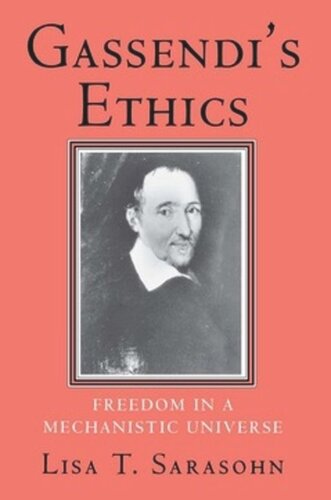

Most ebook files are in PDF format, so you can easily read them using various software such as Foxit Reader or directly on the Google Chrome browser.
Some ebook files are released by publishers in other formats such as .awz, .mobi, .epub, .fb2, etc. You may need to install specific software to read these formats on mobile/PC, such as Calibre.
Please read the tutorial at this link: https://ebookbell.com/faq
We offer FREE conversion to the popular formats you request; however, this may take some time. Therefore, right after payment, please email us, and we will try to provide the service as quickly as possible.
For some exceptional file formats or broken links (if any), please refrain from opening any disputes. Instead, email us first, and we will try to assist within a maximum of 6 hours.
EbookBell Team

4.3
8 reviewsThis is the first book to explore the ethical thought of Pierre Gassendi, the seventeenth-century French priest who rehabilitated Epicurean philosophy in the Western tradition. Lisa T. Sarasohn's discussion of the relationship between Gassendi's philosophy of nature and his ethics discloses the underlying unity of his philosophy and elucidates this critical figure in the intellectual revolution.Sarasohn demonstrates that Gassendi's ethics was an important part of his attempt to Christianize Epicureanism. She shows how Gassendi integrated ideas of human freedom into a neo-Epicurean ethic where pleasure is the highest good, yet maintained a consistent belief in Christian providence. These views challenged what were then the new systems of philosophy, Hobbesian materialism and Cartesian rationalism. Sarasohn places Gassendi in his historical and intellectual context, considering him in relation to contemporary philosophers and within the patronage system that conditioned his own freedom. She investigates the links between his ethical thought and philosophy of science and makes sense of his attacks on astrology. Finally, her work clarifies Pierre Gassendi's considerable influence on seventeenth-century ethical and political philosophy, particularly on the work of John Locke—and thus on the whole English liberal tradition in political philosophy.